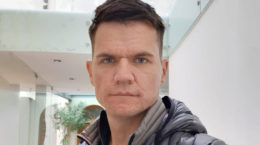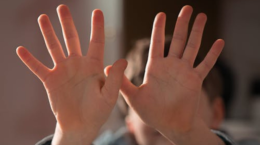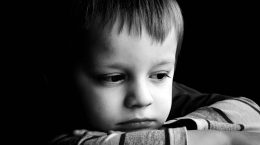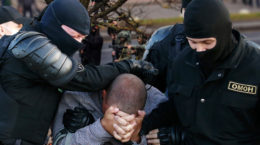The most relevant issues regarding the rights of vulnerable groups – women, children and ethnic minorities – relating to economic and social rights and as well as rule of law and judicial and penitentiary systems are presented below.
- Banned jobs for women
While ADC Memorial and Our House welcome the newly adopted Labor code, and new provisions allowing women having children under the age of 3 to work during public holidays, weekends and go on business trips (the ban remained for pregnant women; Art. 263 LC) and guarantees a leave at a birth of a child for men (however non-paid). Nevertheless, these changes are minors, and do not change the general discriminatory character of labor legislation based on «male-breadwinner» assumption. The new Labor code still have provisions banning women from certain number of jobs that are recognized as heavy and dangerous for women’s reproduction health (art. 262 LC). The list of forbidden jobs for women is defined by Ministry of Labor and Social Protection and contains more than 180 professions.[1]
During the last review of Belarus CEDAW noticed the discriminatory nature of the list and recommended that Belarus “review the restrictive list of professions and ensure that it includes only those restrictions that are absolutely necessary for the protection of motherhood in the strict sense of the term, as well as promote and simplify the employment of women in previously banned areas of professional activity through temporary special measures”.[2] Unfortunately, these recommendations were not fulfilled by the government. We call the Government of Belarus to follow the example of other countries of the region, as Ukraine and Moldova, and implement the recommendation of CEDAW and abolish the list of professions forbidden to woman.
- Ethnic profiling of Roma community
In May 2019, the mass detentions of Roma were conducted in the suburbs of Mahileu and other cities of Belarus, which were accompanied by harassment and disproportionate use of force by police. More than 100 Roma were detained and arrested on suspicions of involvement in kidnapping and murder of a traffic police officer. The Investigative Committee of the Republic of Belarus later found that this suspicion was unsubstantiated, and some police officers were brought to disciplinary responsibility. However, no criminal investigation of abuse of power, illegal arrests and disproportionate use of force have not been conducted.
In December 2019 UN Special Rapporteurs and CERD expressed their concerns with the situation.[3] Human rights organizations also called for effective investigation of violations of rights of Roma.[4] The ethnic profiling of Roma by the Belarusian police have been numerously reported before.[5] We reiterate that the government of Belarus should conduct effective investigation of illegal arrests and inhuman treatment of the Roma community as well as stop the practice of ethnic profiling.
- Children rights
a) children-migrants
Unaccompanied and separated children as well as children-migrants with families face serious violations of their rights, including immigration detention, separation with families and arbitrary removals. Return of children among states-members of Commonwealth of Independent States (CIS) are regulated by the outdated Agreement on the Cooperation of Member States of the CIS on the Return of Minors to their State of Residence 2002, (the Chisinau Agreement). In accordance with the Agreement children-migrants found in the territory of one states are being sent to detention centers and returned to their country of origin to similar detention center. These norms result in persisting violations of child rights, including prolonged immigration detention, lack of education and family environment.[6]
While some CIS countries have closed detention center for minors and abandoned migration detention of children, Belarus continues to place unaccompanied migrant children in the Juvenile Reception Centre—a closed institution under the Ministry of Internal Affairs, which cannot be visited by any independent observers.
We call the authorities of Belarus to stop immigration detention of children-migrants and provide them with the same scope of rights of citizens of the country and encourage to conclude bilateral agreements on return of children with other countries that would be in accordance with children rights.
b) children in conflict with the law (penitential system)
We welcome the recent changes in the criminal legislation adopted in summer 2019 that lowered the minimum punishment under part 2 and 3 of article 328 (drug offenses) of the Criminal Code of Belarus, under which dozens thousand children and youngsters were sentenced since 2014, and the following releases and review of sentences after the legislation changes. However, the systematic problem that lead to massive imprisonment of children and youth – the criminal liability for controlled substances in small quantities – remain in place. Also there are reported increase of new cases under part 4 of article 328 that was not changed in 2019. The law enforcement bodies and courts uses doubtful standards of evidence that do not correspond to fair trial standards, as well as detainees report torture by police to get testimonies and confessions.
One of the obstacles for amnesty or conditional release even when prisoner is entitled to it, is violation of the prison regime. If a prisoner violates the prison rules for two and more times, he/she is defined as “malicious violators”. However, these violation could be so minor, as sleep in the daytime, refusal to go to the dining room due to poor health and if one’s bed is not made perfectly, or, the pillow is not leaning appropriately. Such violations are decided solely by the administration of the prisons. In 2019 many minors sentenced under 328 CC (‘drugs issues article”) did not qualify for the amnesty, because of statuses of “malicious violators”.
Morever, in children prisons there are sets of informal, non-statutory (criminal) rules, which are encouraged by prison employees to better control minor prisoners. This is very cruel prison (criminal) culture, which, is often more tough than in adult colonies. Children sometimes themselves seek at any cost to be sent an adult colony. Due to lack of any independent monitoring of the prison system, there is no means to document and address these violations.
We are also concerned with labor conditions of children in detention. All incarcerated minors have to work, but the working conditions do not conform to age and physical form them. Also in the case of minors a criminal sentence especially should serve the purpose of facilitating their integration back into society after their release. Their wages are extremely low (from zero to 10 euro per month), meaning that families have to provide them with food, clothing and basic hygiene products that their children could not purchase with the money they earned.
Relatives of the convicted children-328 reported problems with accessing basic secondary education, and nearly half of them simply did not receive basic education at all since they have been sent to detention centre.
We call the government of Belarus to reform the system of criminal responsibility for drug-related crimes, to ensure fair trial guarantees within the criminal proceedings, and ensure children rights and human rights observation for children and youth in detention and in prisons.
c) children’s right to family
In 2006 the President’s decree №18 “About Additional Measures on Governmental Protection of children in socially hazardous families” was adopted. The law was meant to protect children’s rights and ensure realization of their interests. According to it state bodies have to detect families in which children are placed in socially dangerous situation (SDS) and have to be removed from the families. Unfortunately, the Decree did not provide precise criteria of SDS, what results wrongful and erroneous removal of children from families and mass and systematic violations of the children’s rights by governmental agencies.
In practice, any “disadvantage” or problem with a family can lead to the label of socially hazardous family and removal of children. Since the heads of local authorities bear personal responsibility for the decree’s implementation, they involve into identification of socially unreliable/ problematic families by schooling institutions, medical institutions, social services, police, firemen, housing and communal state agencies. Often children are removed from families brutal unfriendly and violent way, that result in children’s psychological traumas.[7]
Our monitoring demonstrates that the most wide-spread reasons for marking families as socially problematic and removing children from their families in 2017-2018 were: poverty, especially of parents who have many children; inappropriate family’s housing conditions; unpaid bills or late paid utilities bills; bad habits of parents; unemployment; abuse of parental rights; parents’ disability. In many cases monitored there was no direct threat to children in families, and therefore no acute need of children withdrawal. Provision of social assistance to the families would be a more appropriate way of dealing with the situation. Instead of this, when a child is removed from the family, he/she is placed in social care institution, and parents have to pay month allowance to the government. On average each child sheltering sum equals 220 BRB (an equivalent to 91 Euros). Children withdrawal also allows state bodies to cancel payments to families with many children. It leads to the situations when people are afraid to ask for help social services in crisis situation because they risk to have their children being removed from the family.
We also would like to draw attention to violence against children, especially physical abuse (beating) perpetrated by state officials: state servants, police, or school administrations and teachers. In such cases, it is very difficult to bring to justice an adult who has committed violence because, as a rule, his crime is usually covered by other state structures. Moreover, when trying to punish him, parents face additional violence, threats, and repression. An official who beat a child often starts hounding against the child, the victim of violence.[8]
We call to provide support for families in difficult situations, to ensure compliance with the rights of children and best interests and use removal from family as a means of last resort only when there is a threat to child’s health, life, security.
[1] Order of Ministry of Labor and Social Protection No 35 from 12.06.2014 https://mshp.gov.by/ohrana/ff7555d0abe25acf.html
[2] CEDAW, Concluding observations on the eighth periodic report of Belarus, 25 November 2016, para 32-33
[3] UN Special Rapporteurs, Letter to the government of the Republic of Belarus, October 2019 https://spcommreports.ohchr.org/TMResultsBase/DownLoadPublicCommunicationFile?gId=24895
CERD, Letter to the government of Belarus, December 2019 https://tbinternet.ohchr.org/Treaties/CERD/Shared%20Documents/BLR/INT_CERD_ALE_BLR_9022_E.pdf
[4] Human Rights Center Viasna, Ales Bieliatski addressed the General Prosecutor Office again, January 2020 http://spring96.org/be/news/95892?fbclid=IwAR3ZPyfAkB8Mv828ioZG464BnHvrfDjdQUcVUBk-xEripRLIwVre22erh7s
ADC Memorial, UN Experts Condemn Mass Arrests of Roma in Belarus in May 2019, January 2020 https://adcmemorial.org/www/19412.html?lang=en
[5] ADC Memorial, From Penury to Prison: The Vicious Circle of Rights Violations Against the Roma of Belarus, 2017 https://adcmemorial.org/www/publications/from-penury-to-prison-the-vicious-circle-of-rights-violations-against-the-roma-of-belarus?lang=en
[6] More information could be found here: ADC Memorial, campaign CrossBorderChildhood https://adcmemorial.org/crossborderchildhood?lang=en and Report Migrant Children in CIS countries https://adcmemorial.org/www/publications/migrant-children-in-cis-countries-lack-of-adequate-legal-norms-regulating-cooperation-between-the-countries-involved?lang=en
[7] See testimonies of children, who were withdrew from families under Decree No 8 https://www.youtube.com/watch?v=hkGH4n_YIkU&list=PLxHw4SYR0m8faBvJd9pV3DGCWNDtH0Y64
[8] See an example of such practice here: https://nash-dom.info/59716








